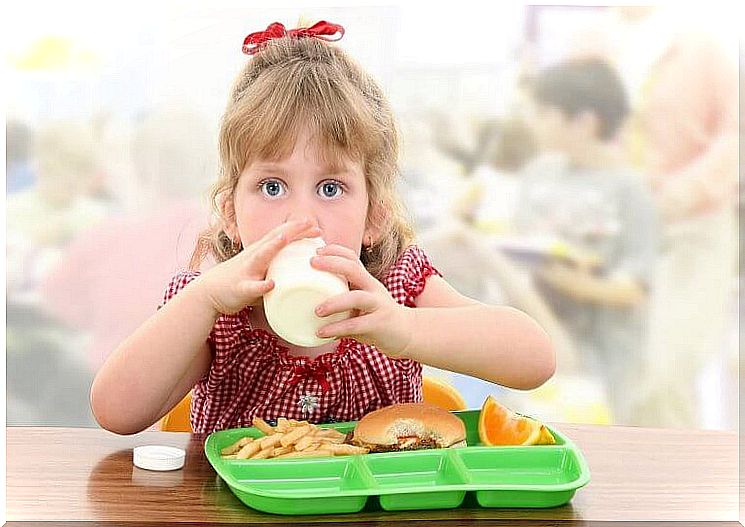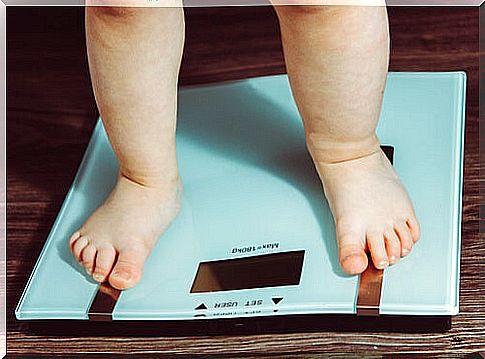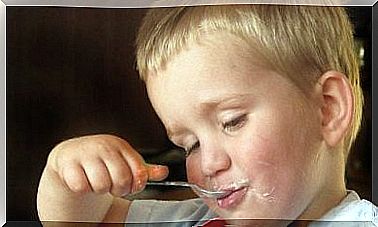Consequences Of Poor Diet In Children

The consequences of a poor diet in children include serious ailments, with permanent and devastating results.
A balanced diet is part of a healthy lifestyle, and reduces the risk of many conditions later in life.
Prevention – not cure: avoid the consequences of poor diet in children
The consensus among physicians is that prevention is better than any cure. Eating a balanced diet that covers all food groups, through childhood, provides lifelong protection against certain conditions.
Meanwhile, habits that are picked up from the parents through the early years can stay with us throughout life.
If children refuse to eat fruits, vegetables or fish, parents should look at other methods by which they can get these nutrients into their diet.
Following a healthy, balanced and varied diet through the early years of life shapes our metabolism as adults.
Slow development, poor concentration and fatigue are just some of the few consequences that a poor diet has for children. For example, children who do not get the right nutrients often have trouble reading or studying.
Malnourished children often have problems with their skin and hair. Vision problems and delayed mental and physical development are often a consequence of nutrient deficiency, along with frequent periods of illness.
Weight gain and weight loss
Whether children eat too much or too little, malnutrition has serious consequences for the body.
One of the consequences is dramatic weight gain or weight loss. Both effects are often seen later in life, including high blood pressure, osteoporosis, kidney disease or heart disease.
High cholesterol and certain types of cancer are also more common in individuals with a poor diet.

Iron deficiency
Iron deficiency is a nutritional deficiency that can lead to anemia. The effect on children’s intellectual development is irreversible. It limits their ability to analyze and understand, and inhibits intelligence.
Muscle weakness
Muscle weakness or myasthenia gravis is another consequence that a poor diet can have on children. Children with this condition may be lethargic and pale, stop growing early in life and cry frequently.
Low physical performance and poor grades in school are other risks. Babies with low muscle tone are usually late to start walking.
Obesity in childhood
Rapid weight gain in children makes it harder for children to move and play. It can also trigger hormonal disorders, diabetes, high cholesterol, bone disorders, breathing problems and liver disease.
A lack of parental supervision, according to what children eat, is one of the causes of poor diet in children.
When children indulge in packaged, pre-prepared meals, processed meats, fatty fast foods, sodas, sweets and deep-fried pleasures, the consequences will quickly arise.
An excessive intake of carbohydrate, protein or fat in a child’s diet can also cause problems for their health. Finding the right balance is crucial.
Protein: excessive intake or deficiency
Protein is indispensable for the growth of muscle fibers. However, in excessive amounts, protein can overload the kidneys and liver, which are responsible for eliminating toxins from the body.
Excessive intake of calcium can accumulate in the body when the body has difficulty eliminating waste. This leads to painful kidney stones. Too much calcium can also reduce the intake of other minerals from the diet.
Meanwhile, protein deficiency can cause other problems, such as fatigue muscle atrophy, fatigue, weakness and lethargy.
Carbohydrates: too much or too little
Throughout childhood, an excessive intake of carbohydrates can cause diabetes and heart disease, in addition to obesity. Too much sugar can also cause cavities, mood swings, difficulty concentrating and hyperactivity.
At the other end, children who do not get enough carbohydrates may feel tired and lethargic. Carbohydrates are energy for the body: in the right amounts, they give us the energy we need.

Dietary fat: the right amount and type
A diet with an excessive content of fat can lead to weight gain. Lack of essential fats, however, can cause vitamin A, D, E and K deficiency, irritability, lack of concentration and lethargy.
Vitamin deficiency can also lead to metabolic problems, fatigue, anemia, scurvy and rickets. Parents should be aware of symptoms such as fatigue, seizures, mood disorders and a reduction in mental capacity.
The consequences of a poor diet in children can be permanent. A varied and balanced diet from the early years of life is the key to living a long and healthy life.
Although it can be difficult to get children to eat nutritious foods from the different food groups, it is indispensable for their future development.









